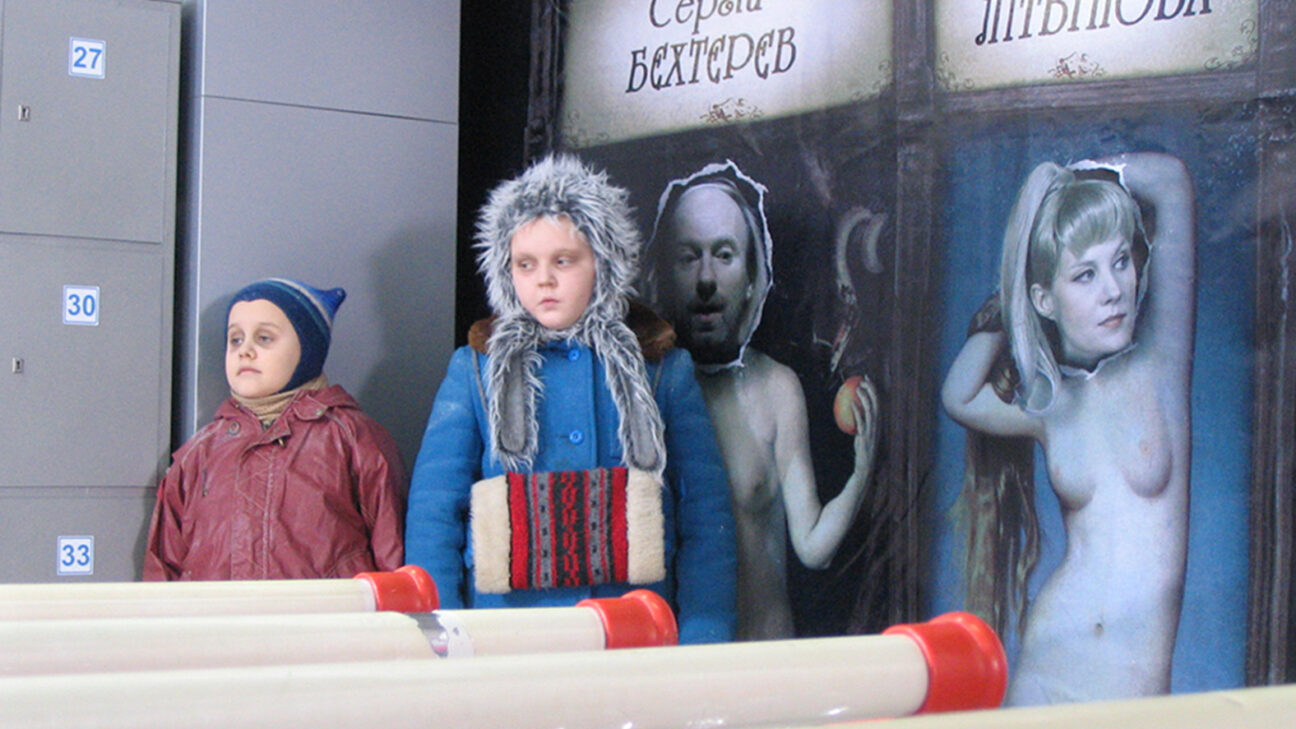Though most of the Ukrainian filmmaker Kira Muratova’s dramas up until 2009 worked within Soviet realist guidelines, they hinted at a magical logic that underpinned their plots and humor. Her pessimistic irony lasted long into glasnost, and, after the fall of the USSR, the accomplished director’s attitude shifted to the labyrinthine logic of survival in post-Soviet states. To her, this new society was something of an anti-miracle where nothing was possible and no force was willing to help; Melody for a Street Organ (2009) was the result of such a vision.
In the film, two orphan children, Alyona and Nikita, travel to Moscow on Christmas Eve to find their father (or fathers). This does not go well. Bureaucratic rules stop the kids from collecting their fortuitous cash, roving gangs of street toughs take time out of their Christmas Eve to pester them, and no adult even considers that they might have a moral responsibility to help these clearly confused children. While strangers may humor them enough to move the kids to another location, nobody has the wherewithal to keep up with them for more than a few minutes. Alyona and Nikita make their way through train terminals, bars, casinos, auction houses, supermarkets, and malls like a couple of Kevin McCallisters, if Kevin McCallister replaced his wily antics with a somber journey for an absent father and exchanged his parents’ fortunes with no money at all. They plead with adults who seem to go out of their way to misunderstand them, and, as the kids’ situation worsens, these adults become even more resolute in their reasons to dismiss them.
But even in Melody for a Street Organ, one the bleakest films from the notoriously bleak filmmaker, Muratova’s trademark comedy stands out. Though each misunderstanding puts Alyona and Nikita in further danger, they still play out as Abbott and Costello gags. Similarly, non-sequiturs abound, such as the ragged elderly breaking out into poetic soliloquy when disturbed by the station police. Even the darkest moment of the film features a character in the foreground who can’t get rid of his hiccups. Though these characters are subjected to constant suffering, the film itself is full of grandiloquent gestures, as nearly every shot is a beautifully composed, fluid crane shot, as if we’re viewing this world through the eyes of the god who left it. Melody for a Street Organ is an uncomfortable beauty, one that teases the hope of redemption even by the time we realize this fairy tale isn’t real.
Melody for a Street Organ screens this evening, May 22, and on May 24, at Film at Lincoln Center as part of the series “Kira Muratova: Scenographies of Chaos.”



